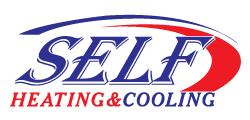The Snow's Effect on Your HVAC System
The Snow’s Effect on Your HVAC System
Normal Ice Build Up on Heat Pumps
The first thing you should note is that not all snow and ice that is built up on an HVAC system is an emergency situation. In fact, in a heat pump, it’s a normal part of the operation especially on extremely frigid days. Heat pumps operate via a refrigerant that absorbs temperature from the Earth’s atmosphere. When the refrigerant absorbs heat excess moisture builds up on the processing coils and when the outside temperatures are at or near zero degrees that moisture freezes up almost instantly. You’ll notice the system run a little more sluggishly on those very brutal cold days but return to normal as the temps start to rise again.
How Falling Snow and Ice Wreaks HVAC Havoc
To be honest, even the ‘normal’ ice buildup on heat pumps and HVAC systems is somewhat rare. This is due mainly to the fact that the units are manufactured to account for this moisture freezing with an automatic defrost setting. When an ice buildup is detected the unit switches to a heat-distribution mode that melts the ice off the coils, all while backup heat keeps the house warm. It generally only takes 30 minutes for the defroster to do its job, but it needs air flow to do so. When snow has built up around the outdoor unit and ice has formed on top of the HVAC components can’t breathe and that defrost cycle doesn’t work – thus raising electricity usage, but more importantly putting incredible wear on the entire system.
Could it Cause Legitimate Damage to the HVAC System?
The most impending damage from snow and ice on an HVAC system is inefficient operation, but there are underlying problems that result as well. The main issue that arises when snow and ice encase the unit is that it triggers an emergency shut-off as the system freezes up. This cuts off heat to the home, which could cause burst pipes that result in property damage as the internal temperatures drop.
As far as physical damage to the outside units, most of the components are designed to withstand the elements in year-round exposure. It’s still possible for snow and ice to build up on the aluminum fan and coil fins and bend them, which would cause loud sounds while operating and will eventually bust the fins. Also, when components have to work twice as hard with a limited air flow, they end up short circuiting and burning out faster than expected.
Snow and Ice Maintenance
Protecting the HVAC system from Old Man Winter takes place at installation and continues during the life of the unit. Here are some guidelines that should be followed:
- Don’t install outdoor units directly on the ground and instead far enough up from normal snowfall (6-10” minimum); most HVAC installers do this as a standard part of their installation procedure
- Build a wind barrier with either shrubs or fences but remember to keep them far enough away for servicing and air flow
- Keep the unit at least 18” away from the exterior wall to increase air passage and to avoid drifting exposure
- Monitor your heat pump and outdoor HVAC systems in the winter. Snow buildup should be shoveled away, gutters should be inspected, so they’re not dripping on the unit, and ice should be melted away with warm water avoiding ice picks and possible damage to the system. If temperatures are still freezing out, warm water is often not a good choice as it will merely refreeze. In this case, let the defrost cycle run its course once or twice (give it an hour) or call an HVAC service technician.











